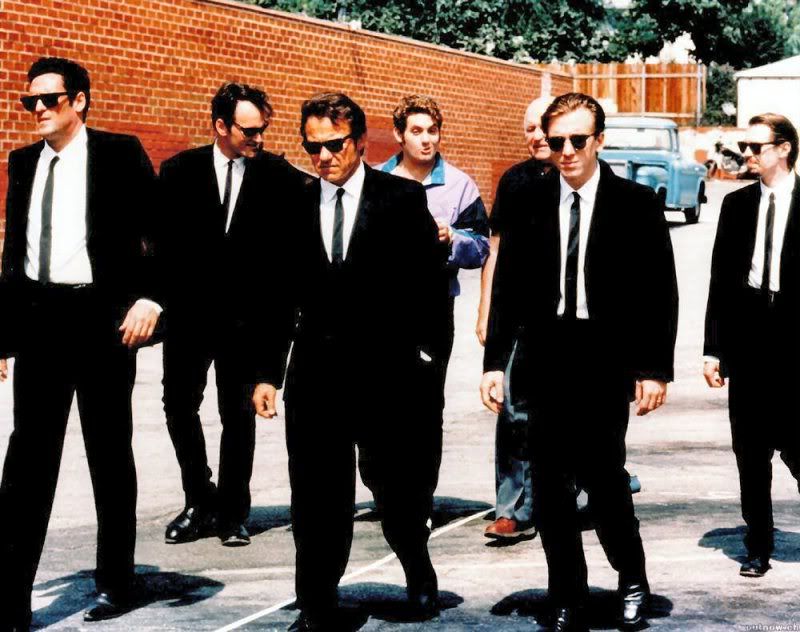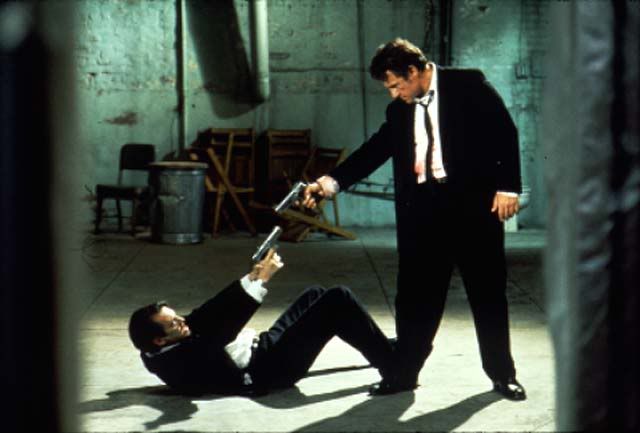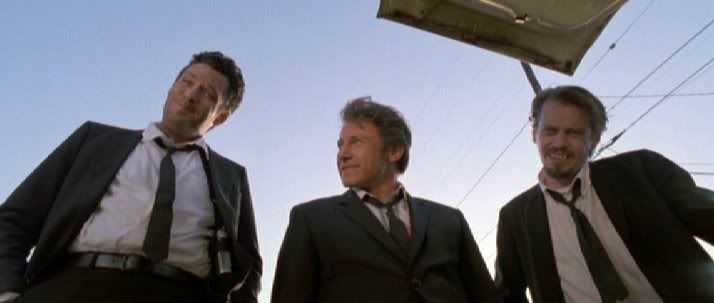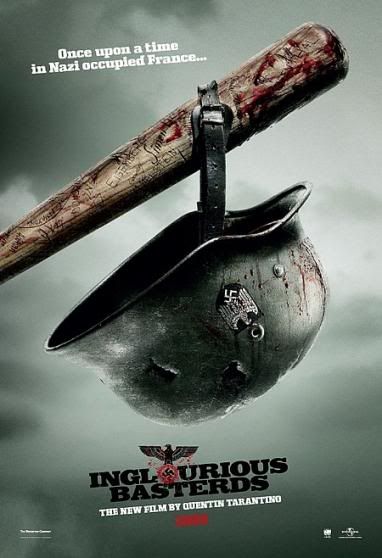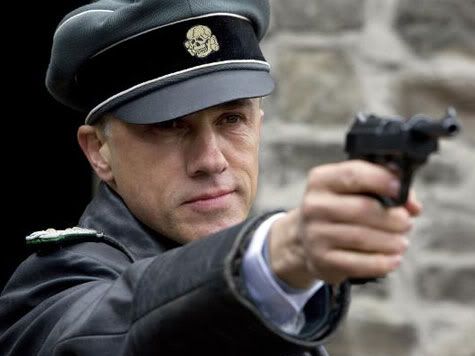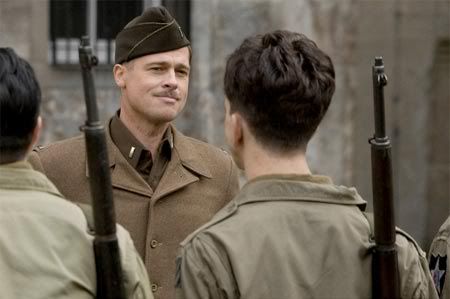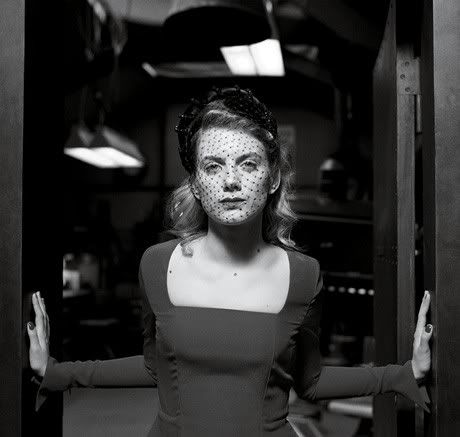
(Audio’s got a little something extra in it this week.)
[audio:http://www.blueinkalchemy.com/uploads/p_fiction.mp3]
I wasn’t planning on starting a Tarantino series. Really, I wasn’t! However, there was a snafu at my local Netflix distribution center, and Crash ended up arriving at the same time as Pulp Fiction. Having just watched Reservoir Dogs last week, and waiting to get final confirmation of everything related to the special request for Crash (for which I’m extremely grateful), the thing that tipped the scales for me picking Pulp Fiction this week was that my wife hadn’t seen it end to end yet. Well, that and the quick Twitter poll I did, because as I’ve said, this isn’t about me, folks, it’s about you. So gird your loins, we’re wading back into the profanity-strewn pop-culture-reference-littered world of Quentin Tarantino.
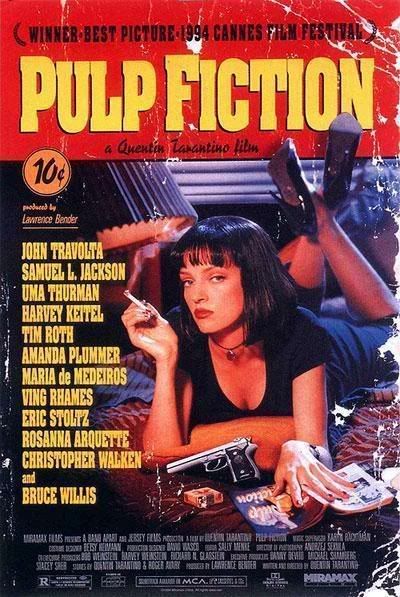
Pulp Fiction is one of those cases of a film being exactly what it says on the tin. There was time when you could wander into a corner store or through an airport kiosk and find little novels with thick, cheap paper that chronicled the adventures of hard-boiled detectives, leggy dames, ruthless gangsters and dirty cops. Pulp fiction is considered by some to be a ‘low’ form of storytelling, just like horror, gangster and kung fu movies are very rarely mentioned in the same breath as big-budget blockbusters or arty Oscar bait films. Still, in the course of this film, Tarantino lays out three different stories about the lives of various people caught up in the underworld of Los Angeles, and while he certainly hasn’t set out to deliver a compelling message about the power of friendship or the heartbreak of losing a loved one or anything like that, he continues to demonstrate the versatility of film as a forum for storytelling.
I really can’t say much more about the stories themselves, since I to try not to be terribly spoilerific for the benefit of those who haven’t gotten around to seeing or reading something. So let’s talk about something more general about the movie. There’s a big difference between this film and Reservoir Dogs that didn’t occur to me until watching them again, one very soon after the other. Pulp Fiction‘s cast is much more diverse than that of Tarantino’s first film. In Reservoir Dogs race relations are touched upon and women only mentioned sparingly. Not so in Pulp Fiction – two black men take on powerhouse roles and the ladies step up to be just as memorable, funny, poignant and immersed in their parts. It’s another ensemble work that doesn’t suffer from having the size of the cast from the modest eight of Reservoir Dogs to the dozen characters whose lives weave into, out of and around one another over the course of Pulp Fiction.
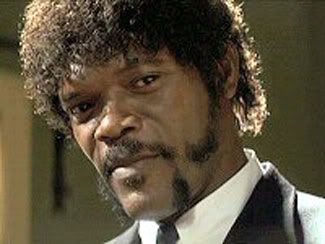
“What does Marcellus Wallace look like?”
Despite this being an ensemble work, two of the actors really stand out in the film. One is Samuel L. Jackson. Hey, other filmmakers? Take a note, here: Mister Jackson needs to portray some emotion when he’s acting. As much as you might want to appeal to the hip crowd by casting him as a Jedi Master or a driven hunter of teleporting twentysomething arrogant dickbags, they aren’t the right roles for him. He delivers intense, well-paced dialog and is at his finest when he’s doing so in a role meant to intimidate or perhaps preach. There’s a world of difference between Jules in Pulp Fiction and his roles in A Time to Kill or Black Snake Moan, but those other films work due in no small part to Jackson’s performances because this talent of his is utilized to its fullest despite the differences in the roles. Jumper and the Star Wars prequels, on the other hand, fall utterly flat. While I don’t think Mister Jackson could have saved those flicks, it just provides more evidence that stoic and bland ain’t his style. Look no further than Pulp Fiction if you’re thinking of putting him in your movie. Having Mister Jackson take a role in your film is like buying a gun: if you don’t learn how to use it properly and know when to take the safety off, either nothing’s going to happen when you need it to, or you’re going to make one hell of a mess.
On the other hand, this is also the first film I remember seeing that included Uma Thurman. Other than hooking her up artistically when Tarantino, we see Uma in turns being both masterful and vulnerable, dignified and all but ruined, verbose and speechless. None of it feels contrived or affected, but rather natural and spontaneous. The same could be said for just about every line spoken in the film, since this is Quentin Tarantino we’re talking about and the man knows how to write and shoot good conversations. However, Uma in particular inhabits Mrs. Mia Wallace with personality that is at once very real and quite memorable. Uma’s roles after this tend to be on the more esoteric side of things, and I don’t think she’s been miscast quite as often as Mister Jackson. Then again, I could be wrong. I could go into more laborious detail about any member of the cast. They’re all excellent. But I think this is starting to run a little long and fan-wanky as it is.
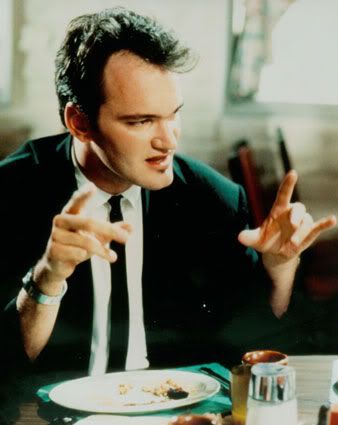
A face only a mother could love. And critics. And movie-goers. And Uma Thurman.
A question I’ve been asked, other than the ever-present “What the hell were you THINKING??” is related to Tarantino’s ‘message’. “What is he trying to say about film?” you might ask. I would reply that Quentin Tarantino, from the very start, has been a defender of film as an art form and a medium of story telling. He came into film-making after working several years as a video store clerk, and from that vocation he brings a deep love of cinema in all its forms. High art pieces, big budget blockbusters, mainstream novel adaptations – those bases are covered. But the little, “low” films, like gangster flicks, kung-fu movies and horror films tended to get marginalized. Tarantino was and is resolved to make sure that audiences and critics understand that film is a vibrant and potent way of telling stories, regardless of the subject matter of a particular film. We’ve seen jewel heist movies before and after Reservoir Dogs, but how many of them have characters that talk and act like real human beings, with believable reactions that range from deeply human fear and doubt to the coldly psychopathic? Pulp Fiction shows us that hitmen, young wives, washed-up boxers and petty crooks are all just people and are a lot more interesting when they’re written as people, not just cardboard cut-outs to spout one-liners or look shocked in front of a green screen.
Pulp Fiction is a rarity. It’s a film that fires on all cylinders at all times without diminishing any of the power, humor or pace of its stories. It’s composed of scary good writing spoken by perfectly cast actors in real situations on real sets. It holds up to repeated viewings because, on top of all of the technical and artistic aspects that make it so singular, it’s just a damn good movie. Now, I know there are some people who might get turned off by some of the things in Pulp Fiction, given its roots in the sort of schlock dime novels I mentioned before. To be certain, the gratuity of the film sometimes verges on the ridiculous, which to my mind just makes it all the more fun to watch. Anyway, just so you know, there’s copious drug use, a couple truckloads of violence, a torrent of swearing that puts the Niagra Falls to shame and even a little sodomy. If you can get past all of that, I think you’ll find that Pulp Fiction, as a film, an exercise in pulp storytelling and a showcase of the sort of writing and acting that all films to should aspire to, is one of the best ever made.
Josh Loomis can’t always make it to the local megaplex, and thus must turn to alternative forms of cinematic entertainment. There might not be overpriced soda pop & over-buttered popcorn, and it’s unclear if this week’s film came in the mail or was delivered via the dark & mysterious tubes of the Internet. Only one thing is certain… IT CAME FROM NETFLIX.

